
By Lisa Brockman
Gary and I were dating. As a Mormon, I wasn’t supposed to date non-Mormons. And Gary, a born-again Christian, knew it wasn’t wise to be dating me.
But the connection between us was stronger than those beliefs, and our convictions didn’t have the power to keep us apart at the time.
We were both athletes, both living rebelliously, and incredibly infatuated with each other. We had only dated one month when seemingly out of nowhere he asked me, “How do you know the Church is true?”
Though I hadn’t seen his question coming, I was armed with a ready response, “Because I’ve prayed about it and have experienced a burning in the bosom to confirm that it is true.”
Gary responded, “How can you entrust your eternal destiny to an emotional experience?”
As a Mormon, I knew of no other paradigm for determining truth. A burning in the bosom created by the Holy Ghost had always been my plumbline to determine truth. Gary followed with several more questions.
“How do you know that Joseph Smith is a true prophet of God?”
“How do you know the Book of Mormon is the Word of God?”
“Can you defend the Book of Mormon as historically credible?”
As one legitimate question evolved into the next, I realized I could not defend my beliefs, and what had always felt like a firm spiritual foundation beneath me turned to quicksand. Every instinct within me was to flee the conversation.
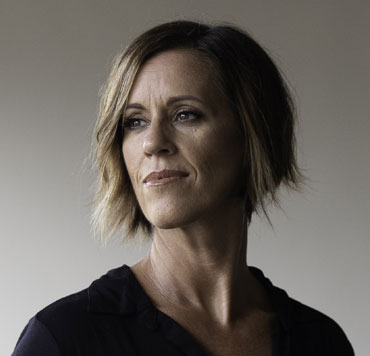 Throughout the following month, I was haunted by our conversation. Challenging Mormon doctrine would be a betrayal of my parents, my church, my community, and my family stretching back five generations.
Throughout the following month, I was haunted by our conversation. Challenging Mormon doctrine would be a betrayal of my parents, my church, my community, and my family stretching back five generations.
Growing up, my teachers taught me that I was the offspring of Heavenly Father and Heavenly Mother in a preexisting world, giving me a divine nature.
I would make myself worthy to marry in the Mormon Temple, securing me for eternal life in the highest of the three heavens called the Celestial Kingdom.
There, I would exalt into a “goddess”1 and my husband, a “god” and I would birth spirit children throughout eternity. This was my life’s path.
There were innumerable standards I needed to keep all day long: resist profanity, protect my chastity, keep the Word of Wisdom (not drinking coffee, tea, or using tobacco), pay a full tithe, attend church faithfully, participate in youth activities, and keep my mind clean.
A virtuous life is a prerequisite to having the companionship of the Holy Ghost and receiving the blessings of Temple ordinances.2 Obeying God “At all times and in all things, and in all places” was the standard.
I was very aware that I possessed a shadow side that failed in virtue. But there is no room in Mormonism for shadows. Only worthiness was allowed.
Shame was always lurking, awaiting my inevitable failures.
The pressure and shame of trying to keep the Mormon law intensified as I grew into adulthood.
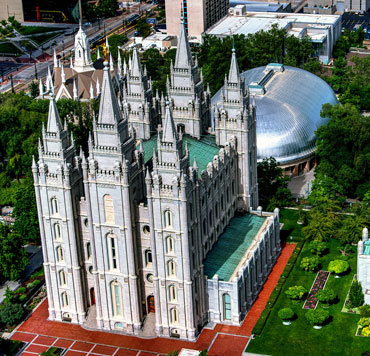 After resisting for years, I finally took the plunge into the party scene with gusto.
After resisting for years, I finally took the plunge into the party scene with gusto.
I knew that one day I would “clean up my act” and marry a Mormon in the Temple.
Dating Gary led to inevitable religious conversations.
As questions mounted, I eventually agreed to do a Bible study with Gary. I naively believed that everything in the Bible would correlate with and support Mormon doctrine. After all, I believed I was a Christian.
It only took one Bible study with Gary to see that my assumption was incorrect. This sent me into an emotional tailspin. The doctrinal dissonance unnerved me.
Each subsequent study stirred up further distress, as I was shocked to find crucial disparities … who and what exactly is God, who are we as humans, how one qualifies for eternal life, etc.
One statement in the Bible that really set me off said, “God is spirit and those who worship him must worship in spirit and in truth.”3
I angrily questioned Gary, “How could God possibly be spirit? That would make Him invisible.” I thought everyone believed as Mormons believed that God was flesh and bones.
Gary and I were in combat mode and we had barely started the Bible study.
Gary showed me numerous statements in the Bible that clearly state that God has always existed as God, all-powerful, all-knowing, perfect and holy, for all of eternity. God doesn’t change.
Again, this news evoked a visceral reaction—born out of fear and a sense of absurdity.
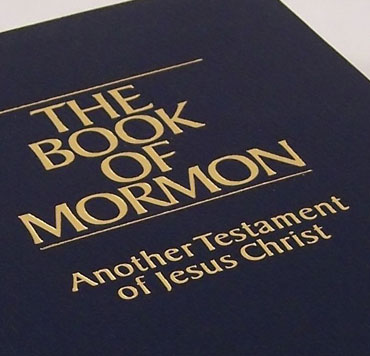 My Mormon god was once a man who, through his works, exalted into godhood, just as I was seeking to do. My Sunday School teachers taught me a mantra that one of the prophets of the Church, Lorenzo Snow coined, “As man now is, God once was. As God now is, man may be.”4
My Mormon god was once a man who, through his works, exalted into godhood, just as I was seeking to do. My Sunday School teachers taught me a mantra that one of the prophets of the Church, Lorenzo Snow coined, “As man now is, God once was. As God now is, man may be.”4
I was haunted by the fear that if I were to come to the decision that Mormonism wasn’t true, I would be an apostate. I would be ostracized from my community, and possibly my family. And after death, my destiny would be an eternity in Outer Darkness alongside murderers.
As much as I hated it to be true, as I read the Bible and the Mormon Scriptures, I couldn’t deny that they contained differing doctrines. I wanted to know which beliefs were true.
As I researched and debated Gary, several issues concerned me.
I discovered there is no archeological evidence supporting the Book of Mormon. There are no historical facts confirming the ethnic groups named in it, or its stories or locations; while there is significant archaeological evidence regarding the locations and events in the Bible.
I also wondered where is the voice of Jesus in the Mormon scriptures?
Why is there no genetic or historical evidence supporting the idea that Native Americans are from Israel?
I also wanted to know who Jesus claimed to be. What did he say about himself?
If Jesus wasn’t my brother, then who was He? If His death didn’t automatically replace my sinful nature with a divine nature, then what did it accomplish?
The more I read the Bible, the more clearly I could see that Jesus was God—that fact was inescapable. He said so Himself.
As Gary and I explored and debated biblical passages, I eventually embraced what the Bible conveyed, that my nature is not divine, but sinful. This actually brought relief, because I could finally make sense of the shadow-side within me.
I was beginning to grasp that God loved me, really loved me, and created me to be in a loving relationship with Him.
I had made myself a goddess and the natural inclinations of my heart were self-serving toward my own exaltation. Even my attempts to fulfill all the requirements were for self-glory, my own divinity.
The Bible is so clear in its message. “…when the goodness and loving kindness of God our Savior appeared, He saved us, not because of works done by us in righteousness, but by his own mercy … through Jesus Christ our Savior…”5
Gary also showed me this in the Bible: “For by grace you have been saved through faith. And this is not your own doing; it is the gift of God, not a result of works, so that no one may boast.”6
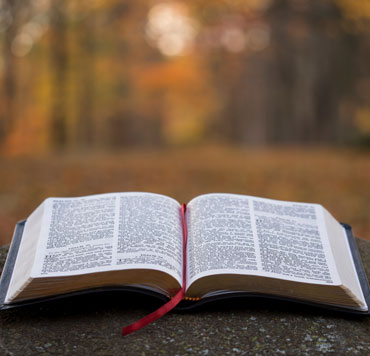 Would I believe in Jesus’ death on the cross for my sins and receive His forgiveness, the gift of salvation, and enter into a relationship with him? If so, God promised that He would never leave me, but would indwell me through His Spirit every moment. I would be secure in God and enjoy life in His kingdom.
Would I believe in Jesus’ death on the cross for my sins and receive His forgiveness, the gift of salvation, and enter into a relationship with him? If so, God promised that He would never leave me, but would indwell me through His Spirit every moment. I would be secure in God and enjoy life in His kingdom.
After 10 months of studying and researching, I had concluded that the Bible, its teachings, and the God of the Bible were true. Yet, there was also the terror of leaving Mormonism and how it would impact my relationships and family.
I was filled with tension, because as close as I was to believing in Him, I was still mystified by His nature. I could clearly see there is one God and that somehow He is manifested in three persons. Somehow, God the Father, God the Son, and God the Spirit are one God.
“God, help me to understand You enough to trust You,” I asked Him.
Then, gently, it was as if I was given a window into another reality—a vision of sorts.
As in Revelations, chapter 4 in the Bible, I could picture Jesus on the throne; the presence of the Father and His Spirit encompassed what seemed like a sea of people before the throne. All were worshiping, bowed low before their King, proclaiming, “Holy, holy, holy is the Lord God Almighty; who was, who is, and is to come.”
This Trinitarian God was not one that I could explain. Yet, I was overcome by the stunning reality that a God so perfectly “other” longed for my friendship.
“Holy, holy, holy is the Lord God Almighty; who was, and is, and is to come.” I was awestruck by God for the first time in my life.
He is unchanging, always has been God, and always will be God. And most importantly, He is love.
As I lay face down on my bed, I wept tears over how my skewed vision of Him had resulted in me worshiping myself, the people in my life, my talents, and so many created things instead of Him.
With tears of sorrow and joy, my words poured forth. “God, there is no God but You. You are holy and I am not. Please forgive me my sins. Come into my life. Thank You that You are love. Thank You that You are faithful and will never leave me. In the name of Jesus Christ.”
I had toiled and fought and wrestled with Gary and God for nine grueling months, and now my soul was finally at rest. I was fully and unconditionally loved. Eternal life had begun for me and would never end. God had given me a new identity— beloved of God.
However, I found myself caught in a tension between my old life, which was completely self-centered, and this new life, which was beckoning me toward a life marked by the freedom to love God and others.
Though I had encountered God and entered into relationship with Him, I became aware that the habits I’d formed had grown into addictions. I continued to party like I had always partied, but it wasn’t bringing me the satisfaction it once had.
When I awoke the morning after a night of partying, I felt something I had not experienced previously. I felt remorse and a discontentedness. I no longer felt shame, but rather, a deep conviction that there was another kind of life that would bring me joy.
For 14 months I lived in this same rhythm, wondering if God would get impatient and be done with me. Yet, my wondering was always met with a gentle reminder I knew from the Bible, where God says: “I will never leave you. I am with you always.”7
It felt as though God was right next to me, whispering His truths into me, “There is, therefore, now no condemnation for those who are in Christ Jesus.”8
I knew I was accepted by God, yet I felt powerless to overcome my addictions.
My 21st birthday arrived and drinks flowed freely. I downed four shots and eight beers with my usual intent to get drunk. The drinks had no impact. I did not even get a buzz.
As a result, this night felt like an out-of-body experience. In my sober state of mind, I wasn’t enjoying the scene. I felt like I was chasing something untouchable and couldn’t get there despite my valiant efforts.
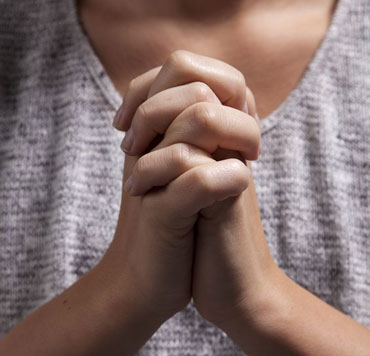 When I arrived home I cried out to God, “I don’t want this addiction to rule me anymore. I am powerless to change. I need You to take away my thirst for alcohol. I want to be free. I need You to take away my dependency on guys for my identity. Will You give me courage to be alone with You? I need You to clean my mind and make it new.”
When I arrived home I cried out to God, “I don’t want this addiction to rule me anymore. I am powerless to change. I need You to take away my thirst for alcohol. I want to be free. I need You to take away my dependency on guys for my identity. Will You give me courage to be alone with You? I need You to clean my mind and make it new.”
When I awoke the next morning, I was instantly aware that a profound shift had occurred in me. I knew that my life-sucking addictions had lost their power over me, and in their place was a deep peace. It was as if God had done a heart transplant.
In place of legalism and shame is a God who is real, whose love is unconditional, who never leaves us despite the many ways we look for life and satisfaction outside of Him.
Jesus said of those who would believe in him, “You will know the truth, and the truth will set you free.”9 (For more on Jesus Christ, please see Why Jesus is God.)
God, who has always existed, who created all that is, loves us far more than we could ever imagine. He invites us into a relationship with himself, to know his love. It is offered freely to anyone who will come to him.
| ► | How to know God... |
| ► | I have a question or comment... |
Footnotes: (1) The language used was that we would become gods. I translated this to goddess because I was a girl. Mormon language also refers to women exalting into queens and high priestesses to their husbands who are their gods. Whatever the term, we would exalt into deity. (2) “Virtue,” The Church of Jesus Christ of Latter-day Saints, accessed January 30, 2019, https://lds.org/young-women/personal-progress/virtue. (3) John 4:24 (4) churchofjesuschrist.org/study/manual/gospel-topics-essays/becoming-like-god (5) Titus 3:4-6 (6) Ephesians 2:8,9 (7) Hebrews 13:5 (8) Romans 8:1 (9) John 8:32 (10) Portions of this article are adapted from Lisa Brockman's book, "Out of Zion: Meeting Jesus in the Shadow of the Mormon Temple"
Other articles/videos you might be interested in…